We rely heavily on electricity, from lighting our homes to powering our devices. The power grid is essential for keeping the modern world running smoothly. However, natural disasters, technical faults, or cyber-attacks can cause unexpected outages. Research shows that about 73% of the U.S. population experiences power outages annually, with over 230,000 lasting one hour or more.
Knowing the correct steps during these events ensures safety and comfort.
Unplug Electrical Devices

When it fails, the power grid can create power surges when electricity is turned back on. This surge can damage your electronics and appliances. Unplug as many devices as possible to prevent susceptible electronics such as computers, televisions, and kitchen appliances. This step might save you hundreds or even thousands in replacement costs.
Conserve Battery Power
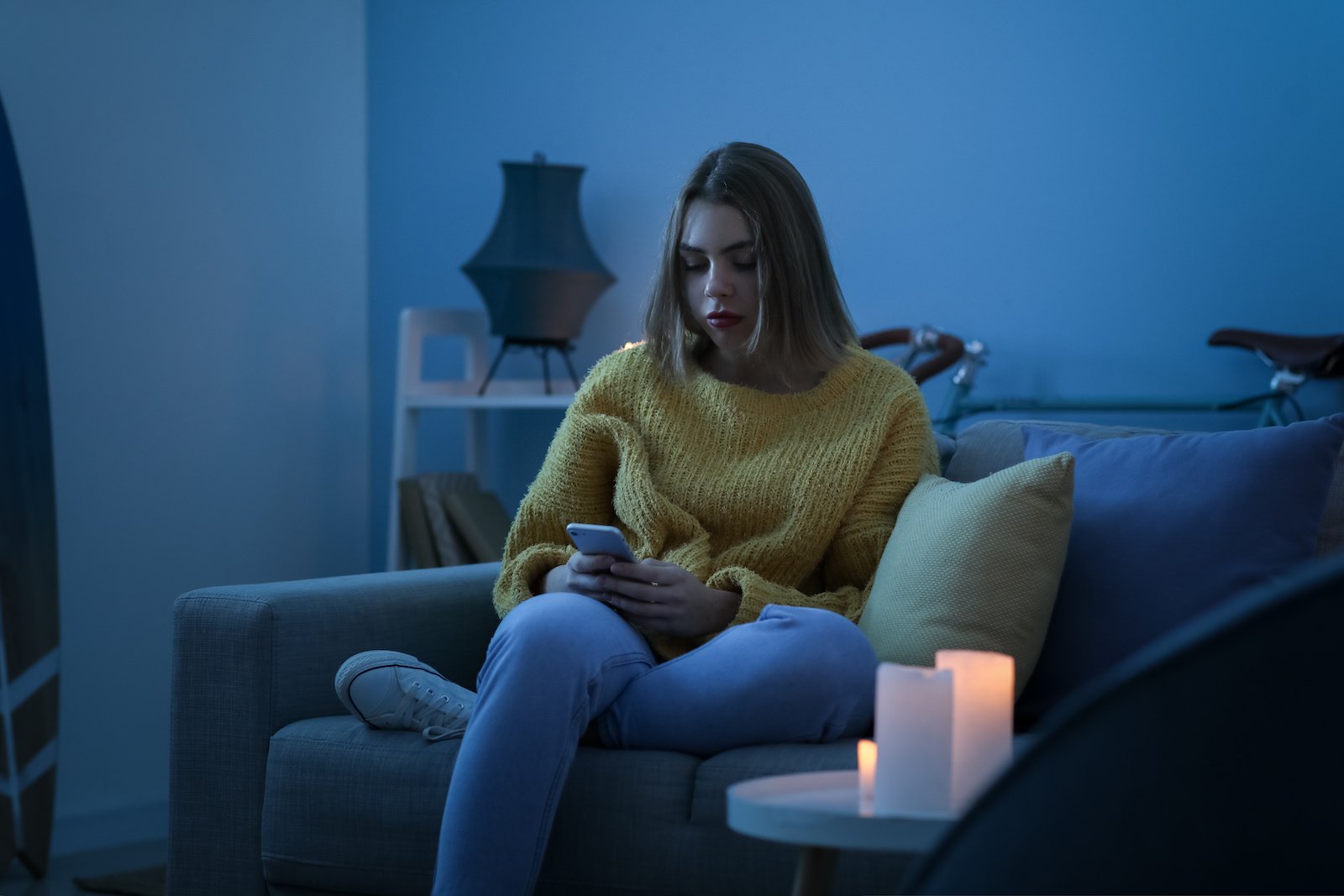
Devices operated with batteries are essential during a power outage. Be careful how you operate them to get the best utility from them. Dim the screen lights on your smartphone, close unused apps, and shut down Wi-Fi and Bluetooth to help preserve battery life. If you have a portable charger or a power bank, ensure it is fully charged and ready for use. By conserving, you ensure your devices last longer and are available for critical communications.
Switch to Emergency Lighting
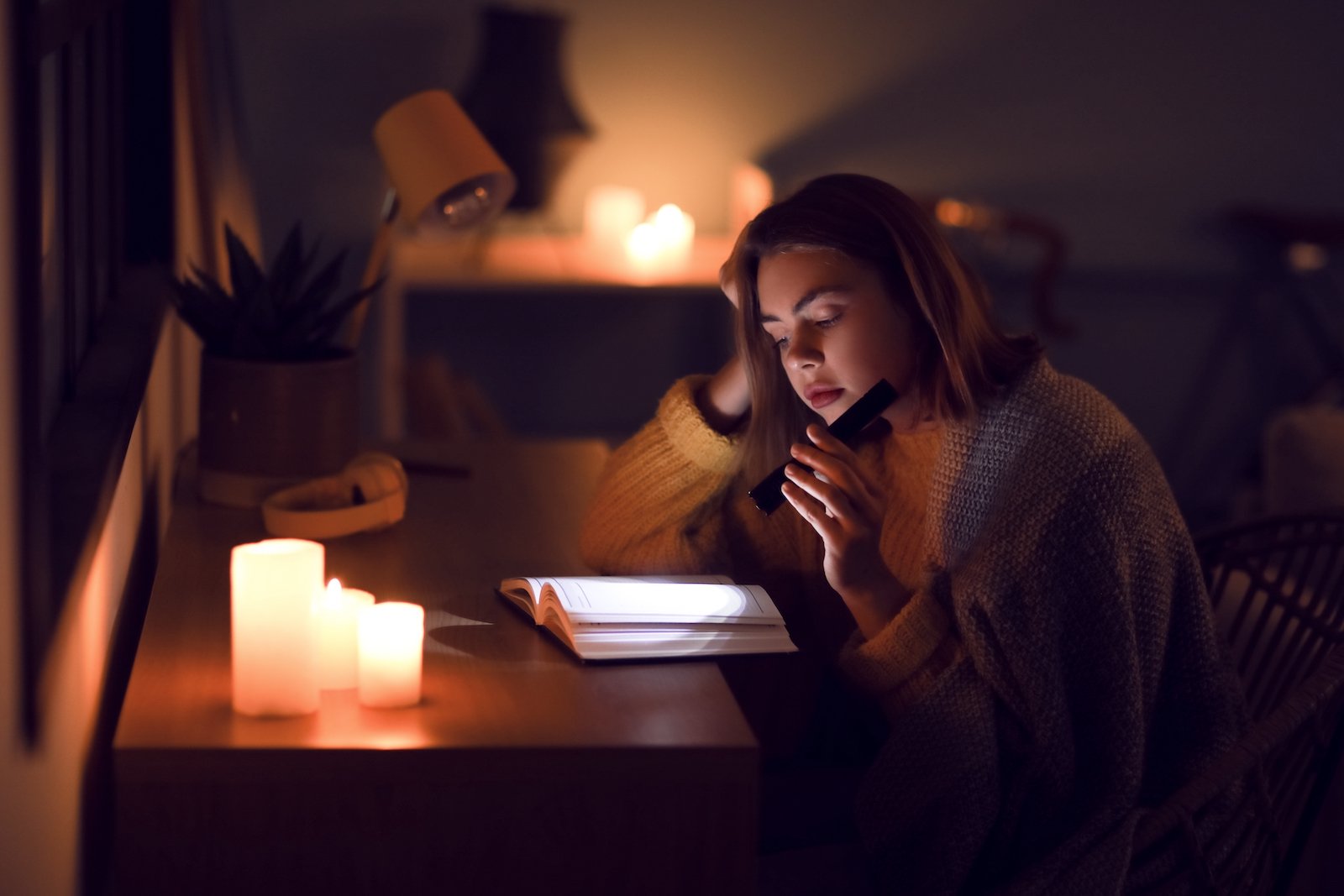
If you are in a blackout or dimly lit setting, you need a safe and trustworthy light. Flashlights, battery-powered lanterns, and candles might prove helpful in this regard. Keep these within easy reach to easily manage them in the dark. However, avoid open flames like candles unless necessary, for they have an innate fire risk. This provides lighting in case of a power outage to prevent accidents and helps you navigate your house safely.
Safeguard Your Home

A power grid failure sometimes creates an opportunity for crime. Without electricity, security systems and outdoor lighting might be rendered useless. To make your home more secure, lock all doors and windows. If you use a portable generator, keep it locked out of sight to avoid attracting potential thieves. If you are in an area prone to looting and other crimes during outages, consider organizing a neighborhood watch with your neighbors to help monitor each other’s properties.
Storing and Keeping Food
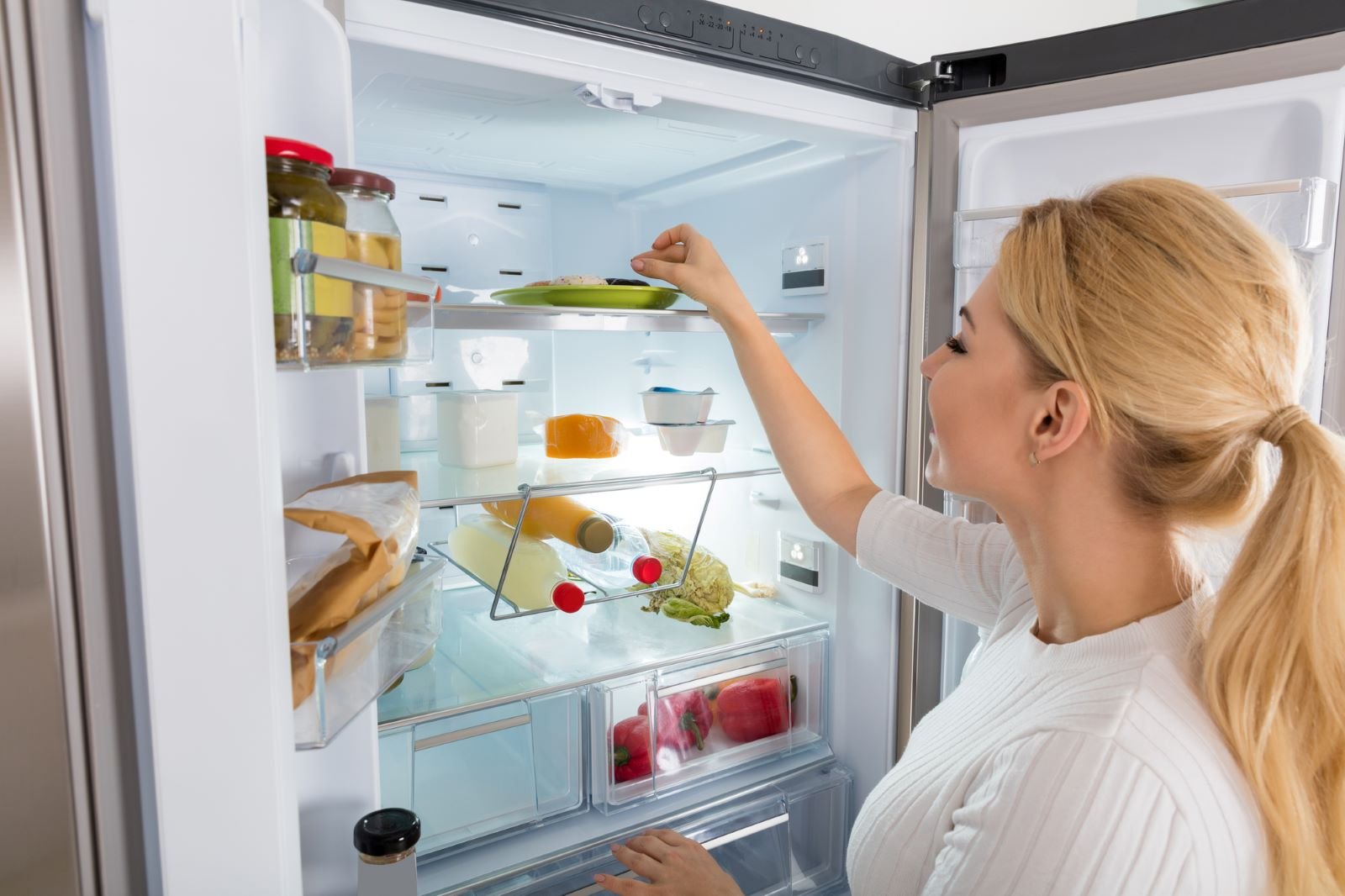
If you are experiencing an extended power outage, your refrigerator and freezer will lose some colds over some hours. For optimal food preservation, minimize the time the refrigerator and freezer doors are open. A fully stocked freezer can maintain its temperature for up to 48 hours, while a half-full freezer can preserve food for approximately 24 hours. If you have ice packs or frozen water bottles, put them in the refrigerator to keep them as cool as possible. That way, you minimize food spoilage and retain some for safe consumption.
Conserve Water

If the power grid goes down and this affects your water access, carefully handle the water in your reserve. Avoid all nonessential uses of water, restricting it to drinking, cooking, and basic hygiene only. Well, owners with electric pumps will lose access to their well water. Use stored water or collect rainwater if needed. Always keep a few gallons of bottled water at home for emergency purposes. As per a statement from the CDC, you should store at least one gallon of water per person per day for emergencies.
Have an Emergency Kit
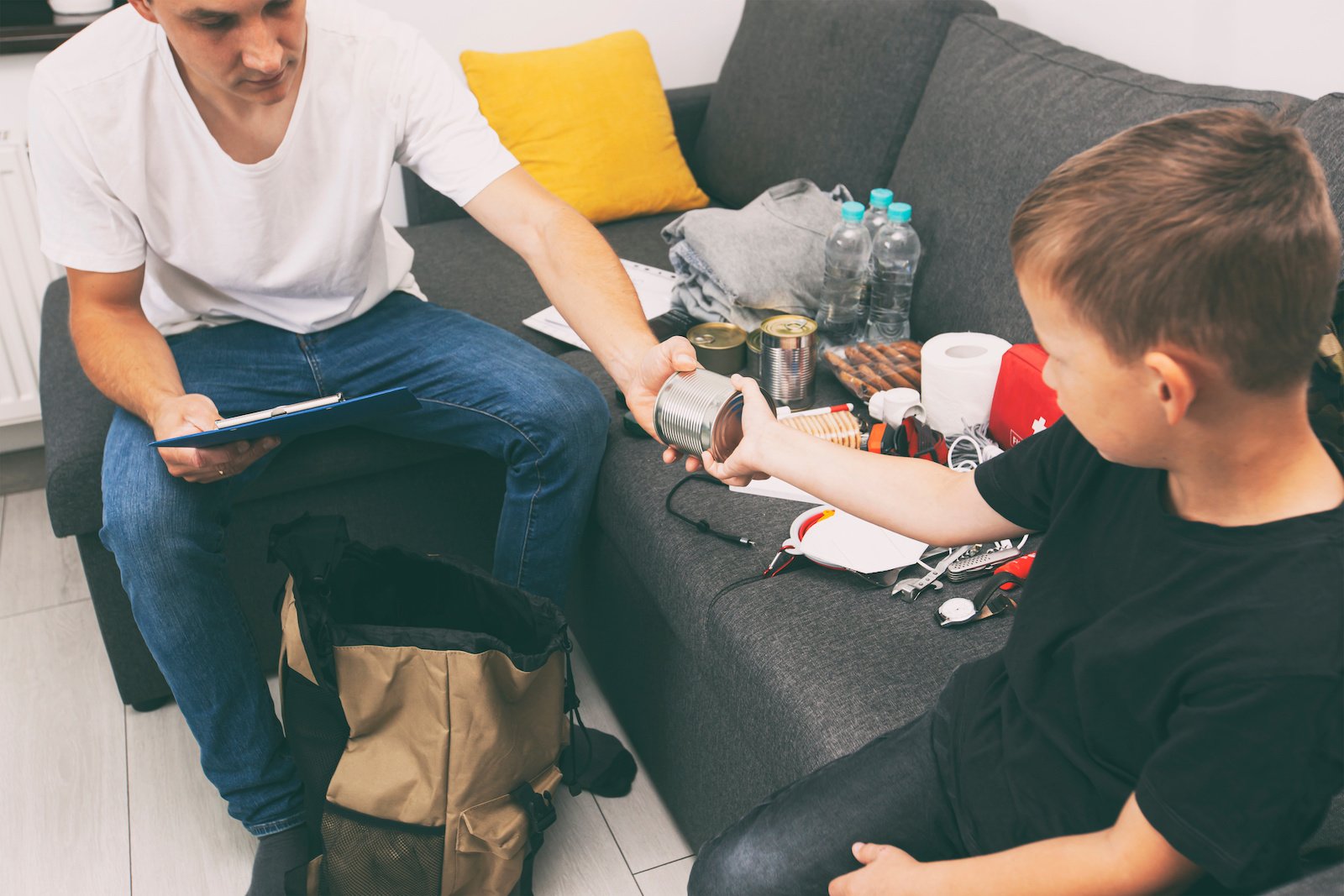
An emergency kit is almost a lifesaver during a power grid failure. It should contain basic supplies, such as non-perishable food, water, a first-aid kit, medications and hygiene products, and medical equipment. Add throw blankets, a multi-tool, duct tape, and cash—since ATMs won’t be working. This kit ensures you and your family will be prepared during an extended outage.
Heating and Cooling
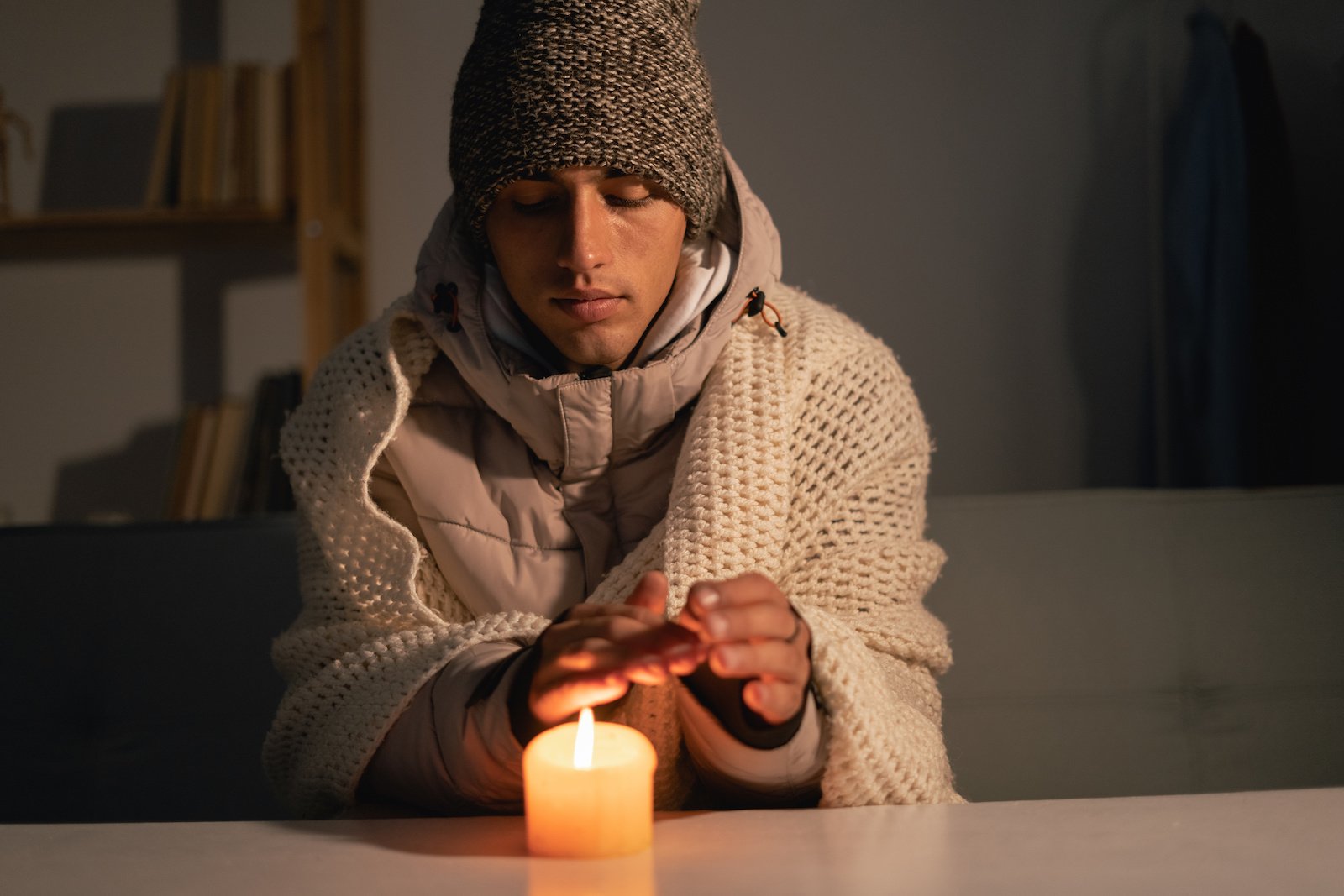
During a power outage, extreme temperatures can be dangerous. During winter, stay warm by dressing in layers and keeping blankets nearby. Close off rooms to retain heat. In hot weather, stay cool by drinking water, using battery-operated fans, and avoiding direct sunlight. If you have a fireplace or wood stove, ensure you have enough fuel to maintain warmth. Preparing for temperature control is essential to avoid conditions like heatstroke or hypothermia.
Check Neighbors and Vulnerable People

When the power grid fails, it is essential to check on your neighbors, particularly the elderly, disabled, or with young children. They may require special assistance or equipment; your assistance could prove invaluable. If local authorities set up emergency shelters or aid stations, tune in for the locations and relay those to others who might need them. Community support during an outage helps to create a sense of togetherness amidst hardship and is an important step toward keeping everyone safe.
Keep Emergency Communication Channels Open

Power outages can disrupt communication. To stay informed, keep your phone charged and have a portable charger handy. If cell service is unavailable, a battery-powered or hand-crank radio can provide vital information. Walkie-talkies or two-way radios will also allow you to be in touch with family members or even neighbors within short distances. Open lines of communication will help keep you updated on the latest events.
Avoid all Travel Except in Extreme Necessity

In the event of a power grid failure, roads and traffic lights are incredibly unruly, raising the potential for accidents—only travel if necessary, such as visiting a hospital or getting vital supplies. If you need to drive, be extremely careful at intersections and watch out for other drivers who might become bewildered or disoriented without traffic signals. Avoiding travel minimizes the chance of an accident and generally keeps you safer while the outage persists.
Be Prepared for Power Restoration
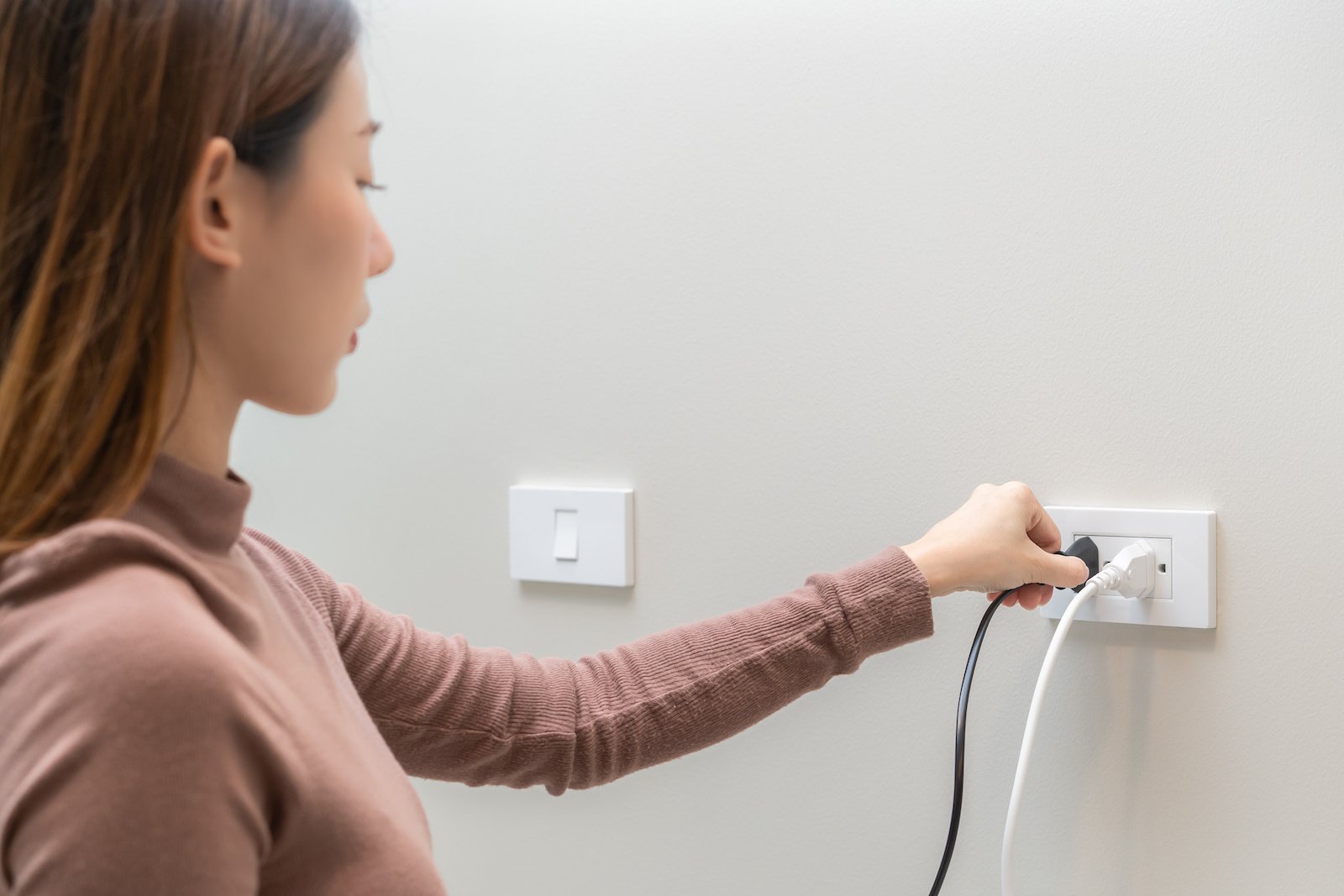
Whenever the grid returns after an outage, surges/fluctuations in electricity can damage appliances. When the outage is over, and it’s safe to do so, plug your items back in one at a time—the first, of course, being the most important, like a refrigerator—then gradually add more. This controlled restoration protects your electronics from damage and ensures an uneventful transition back to normalcy.
Caring For Your Pets

Ensure your pets are safe and comfortable during a power outage by preparing in advance. Keep enough pet food, water, and medications in an easily accessible place. If your pet needs a temperature-controlled environment, plan to maintain it with blankets or battery-operated heaters. Have flashlights with extra batteries ready to navigate safely in the dark. Stick to your pet’s daily routine to reduce their anxiety, and prepare a pet emergency kit in case you need to evacuate.


